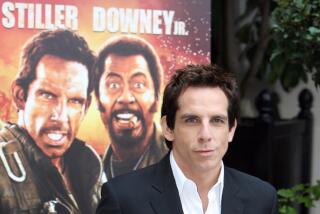‘Bashing’ Brouhaha
- Share via
I attended the press conference Jan. 25 at which the Urban League presented its “Blueprint for Action.” I was concerned and uncomfortable when the phrase teacher bashing was used. The picture generated in my mind was of physical violence. I knew physical violence was not intended. Nevertheless, I was troubled and hoped the matter would fade away.
However, as it received more attention and became an issue, I discussed it with friends, African-American and white. My white friends were generally troubled as I was. The African-American friends I talked with were resentful that an issue was being made of the phrase.
Then one of my African-American friends pointed out that the term bashing has become part of the Standard American English lexicon, and it is more or less synonymous with the word criticize or challenge . We use the word knock in a similar way, as in “Don’t knock it!” However, I was still dubious.
A short time later, I was reading the analysis of Notre Dame’s TV deal with NBC in the Sports section of The Times, and on Page 7 appeared: “Look for renegotiation and continued Notre Dame-bashing from the CFA’s more vocal members.” Then, on Feb. 10 on the first page of the Calendar section, appeared the headline “Is CBS Guilty of Andy Rooney-Bashing?”
I realized two things: The term bashing is in more common use than I had known, and, in the two instances cited, there was not the slightest picture in my mind of physical violence. When an African-American used the term, I reacted differently to it than when an unknown reporter (who I assumed was white), used it. There is no nice way to say it, but my reaction was racist.
I also understood why my African-American friends were resentful. It is ironic that they are criticized for using “Black English,” and told they must speak standard middle-class American English in order to communicate effectively. Then when they do use a term that “has apparently become so publicly acceptable,” as witnessed by its use in The Times, it is given a meaning different from that which The Times meant in its use of the word.
SHUFORD SWIFT
San Diego
More to Read
Go beyond the scoreboard
Get the latest on L.A.'s teams in the daily Sports Report newsletter.
You may occasionally receive promotional content from the Los Angeles Times.










